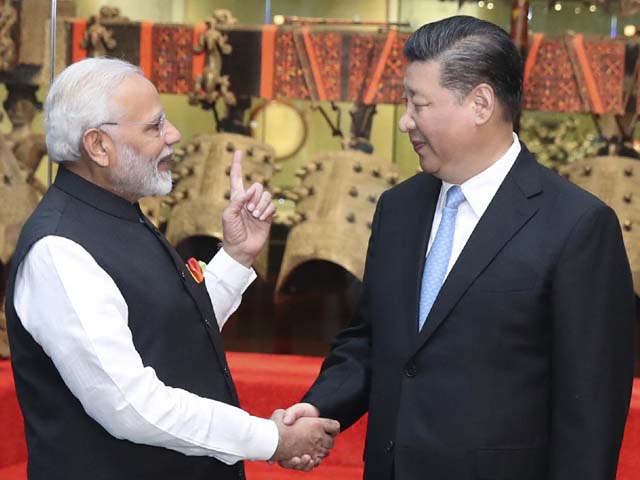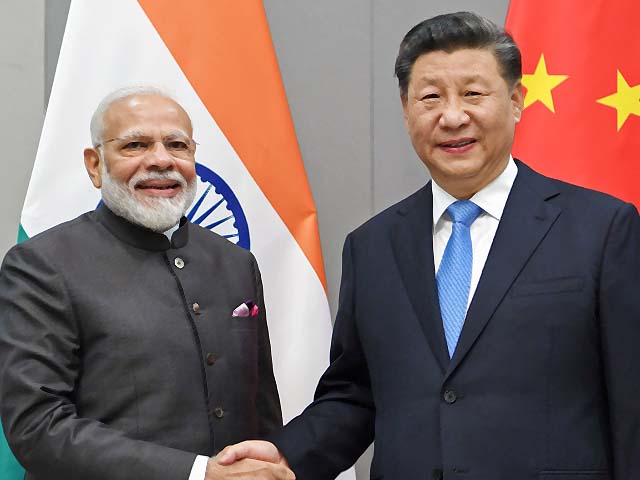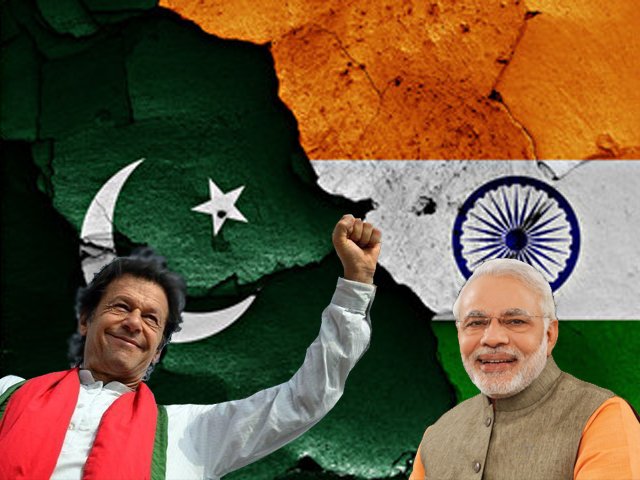
Modi and Nawaz Sharif need to stop undermining cricket for political gains
Vajpayee had offered Pakistan a 'hand of friendship’ and agreed to revive cricketing ties, despite the Kargil incident
During the Sri Lankan tour to Pakistan in 2009, the bus carrying the Sri Lankan cricket team to the Gaddafi Stadium in Lahore was fired upon by militants, injuring six Sri Lankan players and killing six policemen and two civilians. It was a sad day for Pakistan cricket as no country was willing to send its team to Pakistan after this unfortunate incident.
In a scathing attack on the serious security lapse, the then Indian Home Minister P Chidambaram said,
“Such incidents could make Pakistan a failed state, and that one was not sure as to who was in control of the country.”
We, in India, always took pride that unlike Pakistan, sports and cultural events with Pakistan were kept away from politics. However, the recent events involving Pakistani nationals have raised its ugly hydra head, raising serious questions about the growing intolerance in the society.
First, we saw Ghulam Ali’s concert being abruptly cancelled due to threat of disruption by the activists belonging to a fundamental group. This was followed by blackening of the face of Sudheendra Kulkarni for organising the book launch of the former Foreign Minister Khurshid Mahmud Kasuri and thirdly, few activists belonging to Shiv Sena, a coalition partner of the Maharashtra government, broke into the office of India’s cricket Board of Control for Cricket in India (BCCI), just before Shashank Manohar was to meet with his Pakistani counterpart Shahryar Khan.
Unlike the security cover provided to Kasuri during his book launch, Manohar was left to fend for himself. Although one would be right in criticising the inept handling of the state government in not securing the area, but one is at a loss to fathom the reasons for the BCCI president arranging the meeting in Mumbai, especially in the wake of several unsavoury incidents involving the Pakistani nationals.
In an interview given to the electronic and print media, Shahryar Khan bemoaned the fact that no official from BCCI had contacted him regarding the sudden cancellation of the meeting. Khan was in India at the invitation of the BCCI president regarding resumption of cricketing ties with India and to finalise the first of the series which was to be played in the UAE in December. It is to the credit of Khan that in spite of criticism from his constituency, he kept visiting India to revive the ties.
Indian and Pakistani players enjoy a lot of goodwill in both the countries. In 1999, in an evenly fought Test match at MA Chidambaram Stadium, Chepauk, with the momentum shifting from session to session, India was bundled out for 258, while chasing 271 runs. The entire crowd at Chepauk applauded Pakistan for being better than India and for their courageous display — a scene never witnessed before in India, especially in a match involving Pakistan. The visiting side returned the honour with a victory lap.
 Photo: Reuters
Photo: ReutersWho can forget the legendary and glorious innings by Saeed Anwar, when he scored 194 runs against India in an ODI match in Chennai in 1997. It was a class act which won plaudits from all cricket lovers who had come to see the match in Chennai. Similarly, during India’s tour to Pakistan, the spectators cheered loudly for India when they roundly beat Pakistan in Lahore. Newspapers had stories regarding the many Pakistani shop owners who refused to take money from Indians.
Who can forget the unforgettable chant, “Balaji zara dheere chalna” (Balaji, move a bit slower), making the nondescript Indian pacer a hero in Pakistan. It was an unbelievable scene when over 2,000 Indian spectators waved Indian flags at the Gaddafi Stadium.
We witnessed how people-to-people contact can garner bonhomie and goodwill between the two countries. As Ramiz Raja, the then CEO of the Pakistan Cricket Board (PCB) aptly put it,
“This is what people-to-people contact is supposed to be. It wouldn’t have made sense to separate people when they speak the same language.”
As Indians swapped shirts with Pakistanis and Pakistanis stuck the Indian flag into their hats, blue, green, saffron and white was no longer angry metaphors, just different shades of light.
 Photo: AFP
Photo: AFPImran Khan, Wasim Akram, Shoaib Akhtar, Javed Miandad, Saeed Anwar and Saqlain Mushtaq are household names in India. I believe Indian cricketers such as Sachin Tendulkar, Rahul Dravid, Kapil Dev would be equally popular on the other side.
At a time when Indo-Pak relations are at an all-time low, Indo-Pak cricket ties would definitely improve strained ties between two cricket crazy nations or create an enabling situation which would set a platform for both the governments to engage in a dialogue.
 Photo: Reuters
Photo: ReutersSport lovers from both the countries would urge India and Pakistan not to mix sports with politics, as culture and sports are great levellers when it comes to improving ties between the two countries. Just as Bollywood movies are a big hit in Pakistan, the Pakistan TV serials like Humsafar, Maat, Kitni Girhain Baaki Hain have taken India by storm.
Narendra Modi and Nawaz Sharif should learn from the statesmanship shown by the former Indian Prime Minister Atal Behari Vajpayee, who offered a ‘hand of friendship’ to Pakistan, and agreed to revive cricketing ties, despite the unfortunate Kargil incident.
India’s tour to Pakistan was rightly called a ‘friendship series’. Pakistan, on its part, should abandon its paranoid approach while dealing with India.
We sincerely hope better sense prevails and that we get to see a good contest between the two great sides.




COMMENTS (43)
Comments are moderated and generally will be posted if they are on-topic and not abusive.
For more information, please see our Comments FAQ